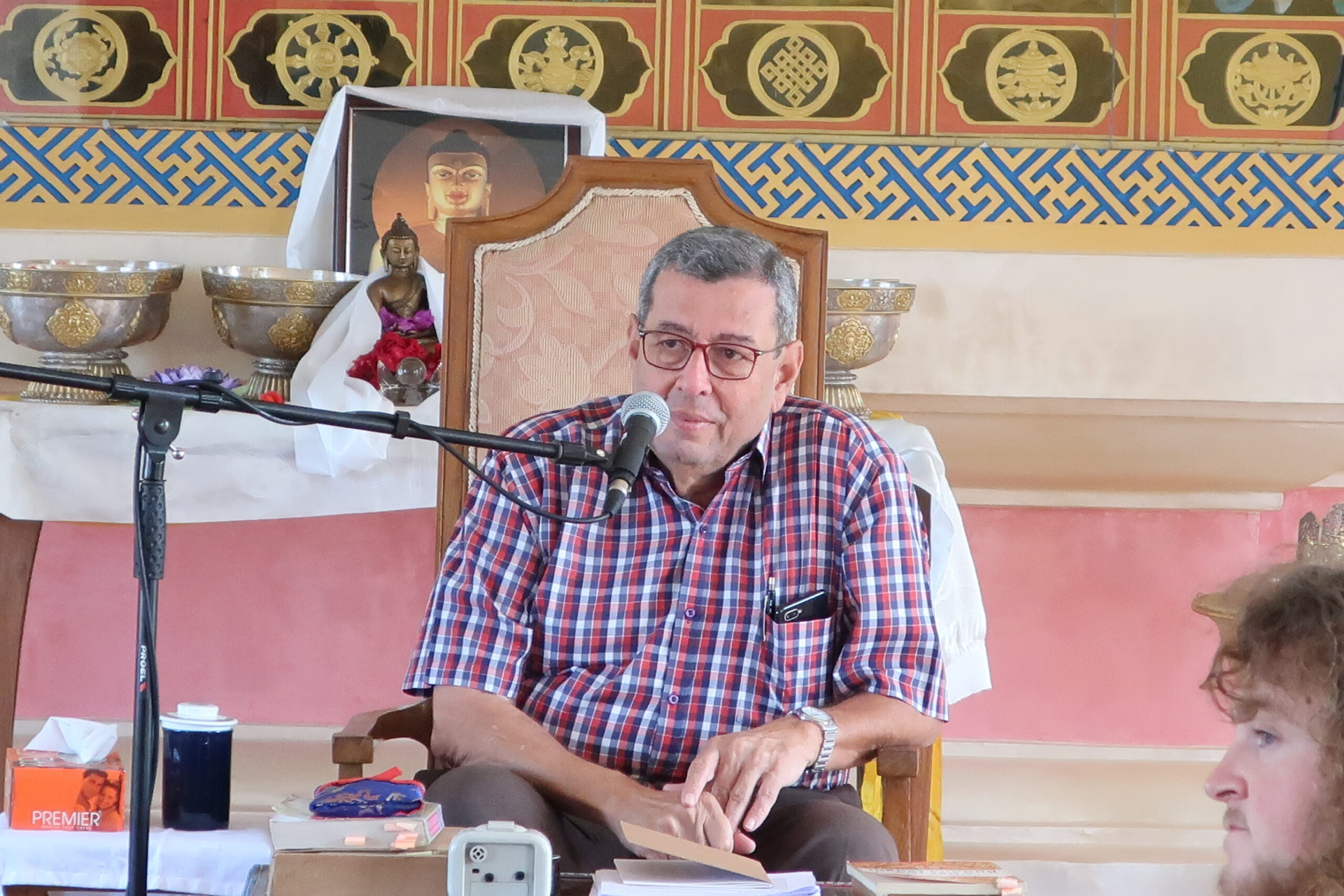
“Understanding The One Buddha Vehicle – From the Four Noble Truths to The Lotus Sutra”- A 4-Day Workshop with Aspi Mistry
“…. the Pure Land of all the Buddhas can arise
in our minds from the ashes of life’s most crushing defeats.
The Buddha-land is not somewhere over there, beyond death.
It is right here”
The Lotus Sutra is one of the most important and influential of all the sutras of Mahayana Buddhism, revered by almost all branches of the Mahayana teachings, and over many centuries the object of intense veneration among millions of Buddhist believers throughout China, Korea, Japan, and other regions of eastern Asia.
And yet The Lotus Sutra stands as one of the most controversial of Buddhist texts. As a Mahayana sutra, a sutra of the “Great Vehicle” tradition, the Lotus Sutra was not accepted by the Buddhist mainstream of its own time as “the word of the Buddha” (buddhavacana). The Lotus Sutra has come to define what distinguishes the Mahayana from the teachings that preceded it.
In this workshop, we will attempt to understand how the Mahayana and the earlier Theravada tradition both spring from the Buddha’s single intent. To lead all sentient beings to enlightenment.
We will examine the teachings of the “First Turning of the Wheel of Dharma”, that is the foundation of all the teachings of the Buddha, and examine how the Lotus Sutra both explains the difference between the two and then seeks to explain it.
In the last few decades, the practice of the Lotus Sutra through the efforts of the Soka Gakkai International, from Japan, has spread widely across India, and there are now thousands of practitioners, across a number of cities and towns in India.
The message of the Lotus Sutra is to encourage people’s faith in their own Buddha nature, their own inherent capacity for wisdom, courage, and compassion. Its central theme is the concept of “skillful means”, and this has often led the sutra to be described as a meta-teaching, teaching about the teachings, that the Buddha had expounded over his nearly forty-year teaching career.
As the sutra pronounces, “In the past, the Buddha had taught three paths or vehicles… However, those paths were skillful means. In fact, there is only one path, one vehicle: the path to Buddhahood, the buddha vehicle”.
In this 4-Day Workshop, we shall be studying the concepts elaborated in the Lotus Sutra placing them in the historical background and context of early Buddhist teachings. We shall study these concepts in some depth and detail, through the structure and parables in the sutra itself.
For those interested, there will also be a couple of meditation sessions and Lotus Sutra practice sessions, to give us a flavour of the actual chanting and sutra recitation.
About the teacher:
Aspi Mistry was introduced to the practice of the Lotus Sutra through the Soka Gakkai in 1992. He has been a practitioner since then and has been associated with Deer Park since its inception in 2006. He is a student of Dzongsar Khyentse Rinpoche and a Board Member of the Siddhartha’s Intent Society. In 2003, he founded the Dharma Rain Centre in Bombay, which regularly organises teachings for the Bombay Sangha, by teachers such as His Holiness the Dalai Lama, Dzongsar Khyentse Rinpoche, Jetsunma Tenzin Palmo, Geshe Lhakdor, and many others.
A socially engaged political activist since his student days, a lover of literature and films, Aspi likes to say with apologies to Shantideva, “May I be a thorn in the sides of those who desperately need a thorn in their sides…”
Dates: 7th to 10th April 2022
Time: 9:30 am to 12:00 and 2:30 to 5:30 pm
Please note that the 4-days of the workshop have been curated to cover a number of subjects that dovetail into each other, and are expected to be an intense study of basic Buddhists concepts to understand the breadth and depth of the Lotus Sutra teachings. If you register, please note that you would be expected to attend all four days, without missing any session. Please register to affirm this commitment.
